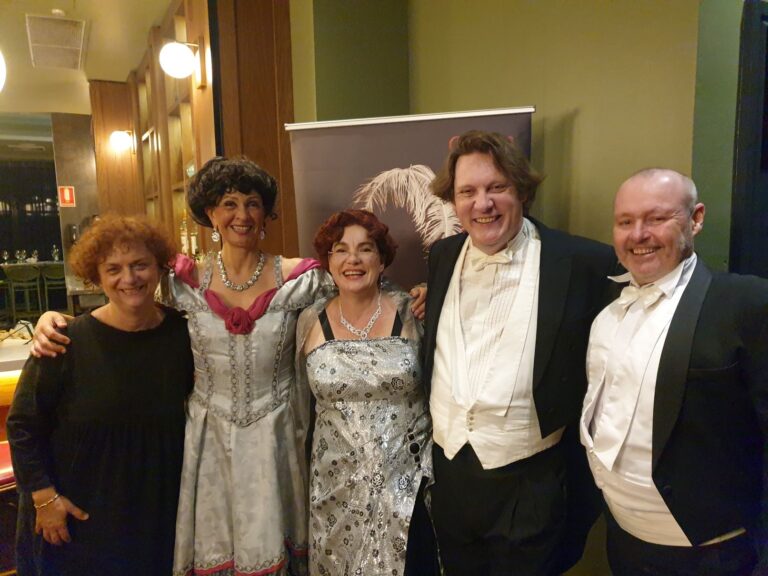
Councillors give Kings Cross another good smacking
COMMENT
City Councillors have cut back the opening hours of the Sugarmill Hotel in Kings Cross from 5am closing to 2am, the latest move in their War on Kings Cross.
This unanimous vote defied the recommendation tabled by Council staff, ignored the balance of comments received from residents, relied on very dodgy statistics and a perverse interpretation of the law, and defied a large majority of locals as reported in Council’s own surveys. Council also breached its own privacy policy by revealing the addresses of those who commented.
The move is a smack in the face for those who enjoy Sydney’s nightlife and it will significantly reduce employment at this well staffed venue.
The naïve among us assume that if lots of people support a proposal, and only a few object, Council will look on it favourably – or vice versa. But today’s politics are far more cynical than that, and consultation is routinely bent to suit those in power.
In this case, by creatively interpreting the law, The City has effectively awarded itself the power to cut back the hours of venues if so much as a single objection is received, regardless of the number of positive comments.
That single objection, you see, creates “uncertainty” in terms of the Act, and that’s all Council thinks it needs to squelch nightlife via a “reviewable condition”.
In this case there were 17 comments in favour of the continued 5am closing vs seven against. Only five of the objectors lived near the venue, with one from Woomerah Avenue in Darlinghurst and one from Darlington (near Chippendale).
We know this because Council published the addresses of the commenters, contravening its own privacy policy.
You and I might think that 17:7 is a pretty clear result. But a memo to Council signed by CEO Monica Barone argued that because some submissions contradicted each other, “uncertainty” existed in terms of the law, so Council had grounds to cut back the hours, even though the Act is clear that the uncertainty principle can also be used to maintain or extend hours. On the basis of Council’s interpretation however, one single objection could be enough to trigger action against any application from a venue.
Council also published a confidential report from Kings Cross Police Commander Tony Crandell which said there had been 67 alcohol-related violent incidents linked to the venue in the past 12 months.
This is puzzling as the hotel is not listed among the top 57 most violent pubs in NSW. Only The Tunnel nightclub is on the current level one list with 19 incidents and even the ‘worst’ venue in Sydney, The Mean Fiddler in Rouse Hill is credited with only 53 incidents.
Police did not respond to Council staff, who presumably were also puzzled by the figure, when they requested details of the 67 incidents.
The answer lies as usual in statistical confusion. The headline data used to rank venues has been “cleansed” to improve its integrity, narrowed down to events within or close by the venue. Licensees are able to consult with police and challenge recorded incidents. The raw data for example can list one incident involving four people as four incidents, and much of it relies on unsubstantiated remarks of people talking to police.
But Councillors accepted the dodgy data without demur. The government at least tries to act on checked, solid data before punishing a venue; but Councillors are happy to rely without question on any old numbers that suit their agenda.
There were also five noise complaints listed against the Hotel, but investigations by staff were “unable to directly link the premises or the patrons of the premises to the congregation of people and noise disturbances in Springfield Plaza.”
The well managed hotel had simply applied for a continuation of its opening hours, which originally had been won in the Land and Environment Court on a one-year trial basis. It recently won continuation of a reduced outdoor seating license, also with clear support from local residents. One Councillor, expecting the usual organised barrage of objections from anti-pub campaigners, went to the trouble of contacting commenters to satisfy himself they were genuine.
So continuing the status quo was not seen to be contentious, and Clover Moore Party Cr John McInerney’s motion for 2am closing came as a surprise. It was rushed through with virtually no discussion.
Cumulative impact
Both the Police report and residents’ objections focused on saturation point/cumulative impact theory, which in essence says that increasing the number of pubs in a precinct will result in a proportionately greater amount of violence. The theory has been embraced by local anti-alcohol campaigners and our Councillors.
Unfortunately for them, the evidence is running the other way in Kings Cross. The Sugarmill opened in December 2008, at about the same time as several other large venues which together added 3,000 drinkers to the licensed capacity of the entertainment precinct.
Saturation point theory would predict a sudden and large increase in crime, but the violence over that period decreased according to Police. An anti-alcohol campaigner at a community meeting attempted to link a cluster of incidents mapped around the Coke sign to the increase in venues in that area. The Police answer was clear and direct: “You’ll get no joy out of that, because the violence has decreased.”
Council’s own research, crafted to support saturation point theory, used much older data to make its case, ignoring this newer information. And Council’s survey of locals yielded only 16 per cent who wanted fewer pubs and clubs in the precinct.
Councillors have been apprised of this confounding information several times, but they simply ignore it in their burning ambition to impose their middleclass values on Sydney’s nightlife, supported by a small minority of complainers who have moved into an entertainment precinct they cannot tolerate.
by Michael Gormly









